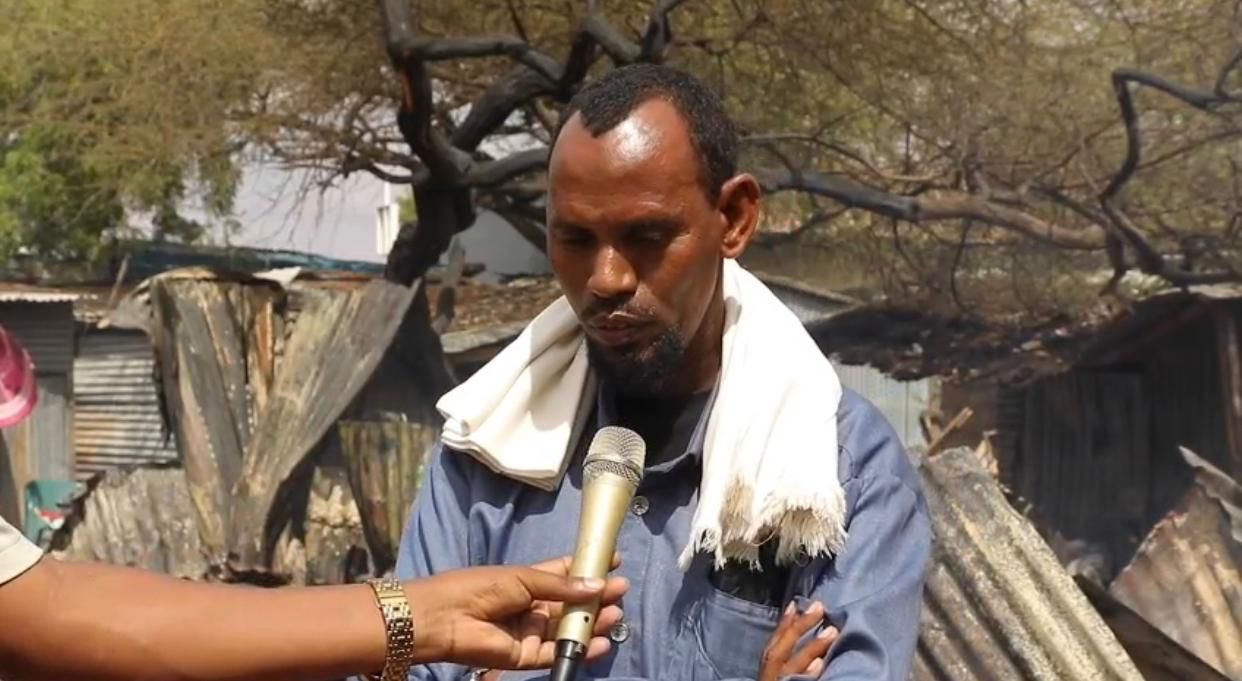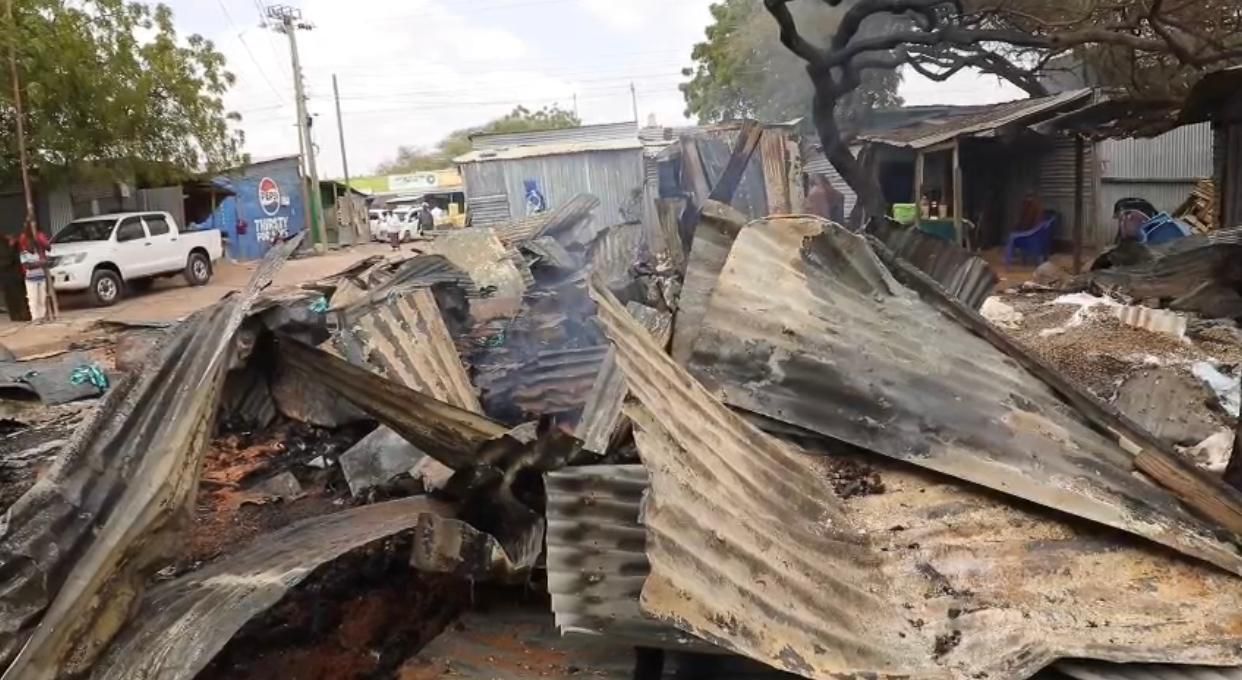 Hussein Mohamed a trader at the market./STEPHEN ASTARIKO
Hussein Mohamed a trader at the market./STEPHEN ASTARIKO  The Soko Mjinga open air market that was razed on Sunday night./STEPHEN ASTARIKO
The Soko Mjinga open air market that was razed on Sunday night./STEPHEN ASTARIKO
Police in Wajir have launched investigations into a mysterious night fire that razed Soko Mjinga market, leaving hundreds of traders counting losses.
The Sunday night inferno, which started from one of the stalls, left more than 60 stalls owners in the open-air market counting huge losses.
By Monday morning, charred timber, twisted metal sheets and smoldering debris were all that remained of what had been the town’s busiest commercial hub.
Distraught traders who spoke to the press narrated how they were preparing for early-morning sales when they were alerted to the blaze.
A fire engine from the Wajir County Municipality—backed by desperate residents who formed human chains to pass water—managed to contain the flames before they consumed the entire market.
Fatuma Hussein, a long-time vendor, fought back tears as she stared at the smoldering rubble of her stall.
“I have lost goods worth one million shillings. We are constantly facing tests and trials. Every time we rebuild our livelihoods, we are knocked down again by an unforgiving fire,” Fatuma said.
Another trader, Mariam Hussein, who owns an electronics shop, was quick to call on both the national and county governments, as well as well-wishers, to come to their aid.
“We don’t know what caused this fire that has destroyed our businesses. Only Allah knows. For now, our only plea is that the government and well-wishers step in and help us rebuild our shattered livelihoods,” she said.
Another trader, Rukia Hussein, stood silently over the ruins of what had been her thriving business—one she built from sheer sacrifice.
“I had just brought new clothing stock from Nairobi, hoping to make profit. All of it is gone. I really don’t know where to start. Life has turned upside down for me. But I trust Allah will see me through this difficult period,” she said.
Hussein Mohamed, another trader whose utensil stall was also reduced to ashes, raised his concern over the series of fire incidents that he noted add to a worrying pattern.
“The authorities need to up their game on matters responding to emergencies like this. We need to have fire extinguishers on standby. Otherwise, it cannot be that whenever fire breaks out is when you will see the fire engines rushing. By the time they arrive, it is late,” Hussein said.
“As traders, as has always been the case whenever such a tragedy happens, we are always left on our own. We now begin the painful task of picking up the pieces with no help forthcoming,” added Hussein.
Several markets in the region—including Soko Mugdi, the largest market in Garissa town, and the Hagardera refugee camp market—have suffered devastating fires this year, each incident leaving traders counting losses in the millions.















